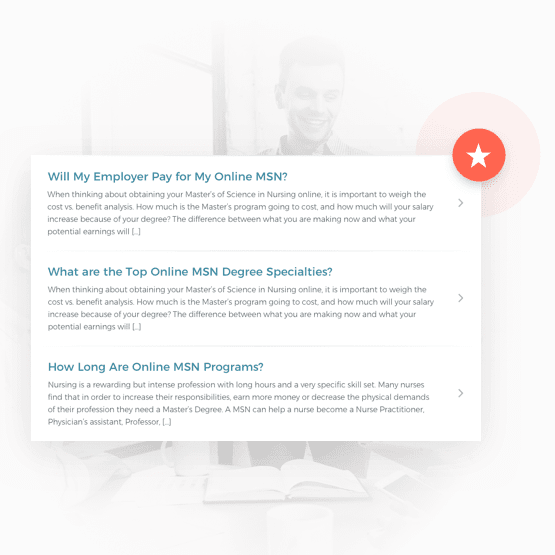Best Value Colleges
Online tools and rankings to help you find your perfect value college.
25 Best Value Online Digital Marketing Masters Programs

50 Colleges With Lowest Tuition Costs

20 Colleges That Offer Free Laptops or iPads for Online Students [2024 Guide]

2024 Best Online Medical Coding and Billing Schools for Certificates

2024 Cheapest Criminal Justice Degree Online Programs

2024 Most Affordable Online Cyber Security Degree Masters


Find your perfect value college
Popular Articles
Featured Rankings
Search Value Colleges

How ValueColleges.com Rankings Work
Embark on a journey of discovery with Value Colleges, your trusted companion in navigating the vast landscape of higher education. Here, we meticulously curate a plethora of resources designed to illuminate your path towards making an informed and rewarding college choice.
Our hallmark feature is our distinctive numbered rankings of colleges and degree programs. Through a lens of clarity and precision, we present to you a comparative landscape showcasing colleges that excel in delivering value at an affordable cost. Our rankings are a blend of critical factors, carefully weighed to reflect what matters most to prospective students.
Dive into our engaging listings that spotlight colleges with remarkably low tuition fees, without compromising on the quality of education. Explore institutions boasting the most enticing return on investment, a pivotal factor in ensuring your educational endeavor is a financially sound decision. Delve into our analyses of job placement statistics, an indicator of a college’s ability to propel its graduates into promising career trajectories.
But we don’t stop there. Our rankings are uniquely crafted to provide a holistic view, encapsulating a harmonious balance between affordability, return on investment, and job placement success. This multidimensional approach aims to present a well-rounded perspective, aiding you in identifying the colleges and programs that resonate with your aspirations and financial considerations.
At Value Colleges, we transcend beyond mere rankings. We strive to be a beacon of insight and trust in your quest for education that truly adds value to your life and future. Venture through our treasure trove of resources, and step closer to a decision that could redefine your academic and professional journey.
Value College Features
Unveiling a rich array of feature articles, we aim to provide you with an immersive exploration into the multifaceted factors crucial for making an enlightened college choice. Our in-depth analyses are crafted to guide you in prioritizing what matters most to you.
Is it a nurturing, flexible environment ripe for personal growth that you seek? Or is an academically strenuous setting that fuels your motivation and challenges your intellect more to your preference? The choice between forging a robust network for future endeavors and honing a unique skill to distinguish yourself post-graduation is a nuanced one. We delve into these considerations, aiding you in discerning what aligns best with your long-term aspirations.
But the deliberations don’t stop at mere academics or networking. We also illuminate the often overlooked financial aspects of your college journey. Uncover the hidden costs—those nickel-and-dime expenses that could strain your budget. We provide practical insights on managing finances amidst a bustling student life, whether your days are spent engrossed in books, glued to a computer screen, or immersed in lab experiments.
Our feature articles are more than just a cursory glance; they are a deep dive into the essential, the nuanced, and the often overlooked aspects of the college selection process. With a wealth of practical advice and real-world insights, we strive to equip you with a robust framework for making a well-rounded, informed decision. Your college experience is a significant chapter in your life’s narrative. Let us assist you in making it a chapter replete with growth, accomplishment, and financial prudence.


Value College FAQs
Delve into our comprehensive Frequently Asked Questions (FAQs) section, curated meticulously to demystify a variety of essential terms and concepts, resolve common misconceptions, and provide a thorough overview of colleges and programs. Our aim is to present information in a straightforward, unambiguous manner, making the world of academia effortlessly navigable.
Curious about what the term ROI entails? Puzzled over the real impact a college’s reputation has on your resume? Finding it challenging to differentiate between grants, federal loans, and private loans? At Value Colleges, we have all these queries and more, covered.
Our FAQs are designed to serve as your go-to resource, offering clear, concise explanations that tackle the core of the matter. Whether you’re just starting on your educational journey or looking to make informed decisions about your future, our well-structured FAQs provide a wealth of knowledge at your fingertips.
Moreover, we delve into profiling reputable colleges and noteworthy programs, providing a clearer lens through which you can evaluate and compare your options.
We believe that with the right information, making meaningful decisions about your education becomes significantly simpler. So why wait? Explore our FAQs and arm yourself with the knowledge necessary to navigate your educational journey with confidence.
Why Invest in an Affordable College?
Trying to figure out all of the things that go into choosing a college can be overwhelming – what to major in, where to live, what’s the best fit for your personality and priorities. But when you add in the questions about cost and investment, you can get in over your head very quickly.
Most high school graduates don’t have a fortune to pay their way through college. They have to do it the hard way, putting together scholarships, grants, student loans, and work. And when that kind of diligence and sacrifice go into a degree, they don’t want to take any foolish risks. It’s important to know that the education they’re getting is worth the price.
MOST HIGH SCHOOL GRADUATES DON’T HAVE A FORTUNE TO PAY THEIR WAY THROUGH COLLEGE. THEY HAVE TO DO IT THE HARD WAY
Others go back to school later in life, with a family, rent or a mortgage, medical bills, or credit card debt. They know they need a degree to help push them into a higher category of job, but they have to think about child care, work schedule, and energy level. Before they make that leap into becoming a student, they need to know there’s going to be a return on their investment.
Data from the U.S. Bureau of Labor Statistics clearly shows that in 2013 Americans with 4-year college degrees had lower unemployment rates (4% versus 7.5%), and also made 41 percent more weekly, than those lacking a degree. This wage gap is only increasing as college becomes the new standard for employability.
On the other hand, student debt is a very real problem and becoming more and more of an economic concern every year. According to the Department of Education, over 2 million graduates have defaulted on their federal student loans, and more than one and a half million are in a special repayment plan because of financial hardship. In a tough economy, people just can’t pay back huge student loans, especially if their degrees turn out to not be worth much on the job market.
ACCORDING TO THE DEPARTMENT OF EDUCATION, OVER 2 MILLION GRADUATES HAVE DEFAULTED ON THEIR FEDERAL STUDENT LOANS
Not all colleges offer the same quality education, and not all degrees prepare you equally for the expectations of the job market. You need the higher wages and greater employability that a college degree offers, but you also don’t want to chain yourself down to a lifetime of debt that will never go away. Somehow, you need to figure out which colleges and degrees are worth investing your time and money, while still remaining reasonably affordable. How do you do it?
Well, Value Colleges has done the research for you.
What Do We Mean By “Value”?
In deciding how to determine value, we take a lot of factors into consideration. Value is a complex formula, and most of us just aren’t equipped to weigh out all the factors fairly and logically. So that’s what we do. Our main concerns are:
QUALITY
AFFORDABILITY
RETURN ON INVESTMENT
Plus, there are the fuzzier aspects of value in a college – the things that are harder to put a monetary value on: growing in intellectual and social maturity, becoming a responsible citizen, building a network of friends and colleagues for future support and finding your path in life.
Having a practical understanding of “value” is more important now than ever, with an unstable economy, rising tuition, and a glut of colleges promising you success. We’ll help you sift through the research with our rankings, resources and featured articles. Start by checking out our feature, What is the Value of College?



